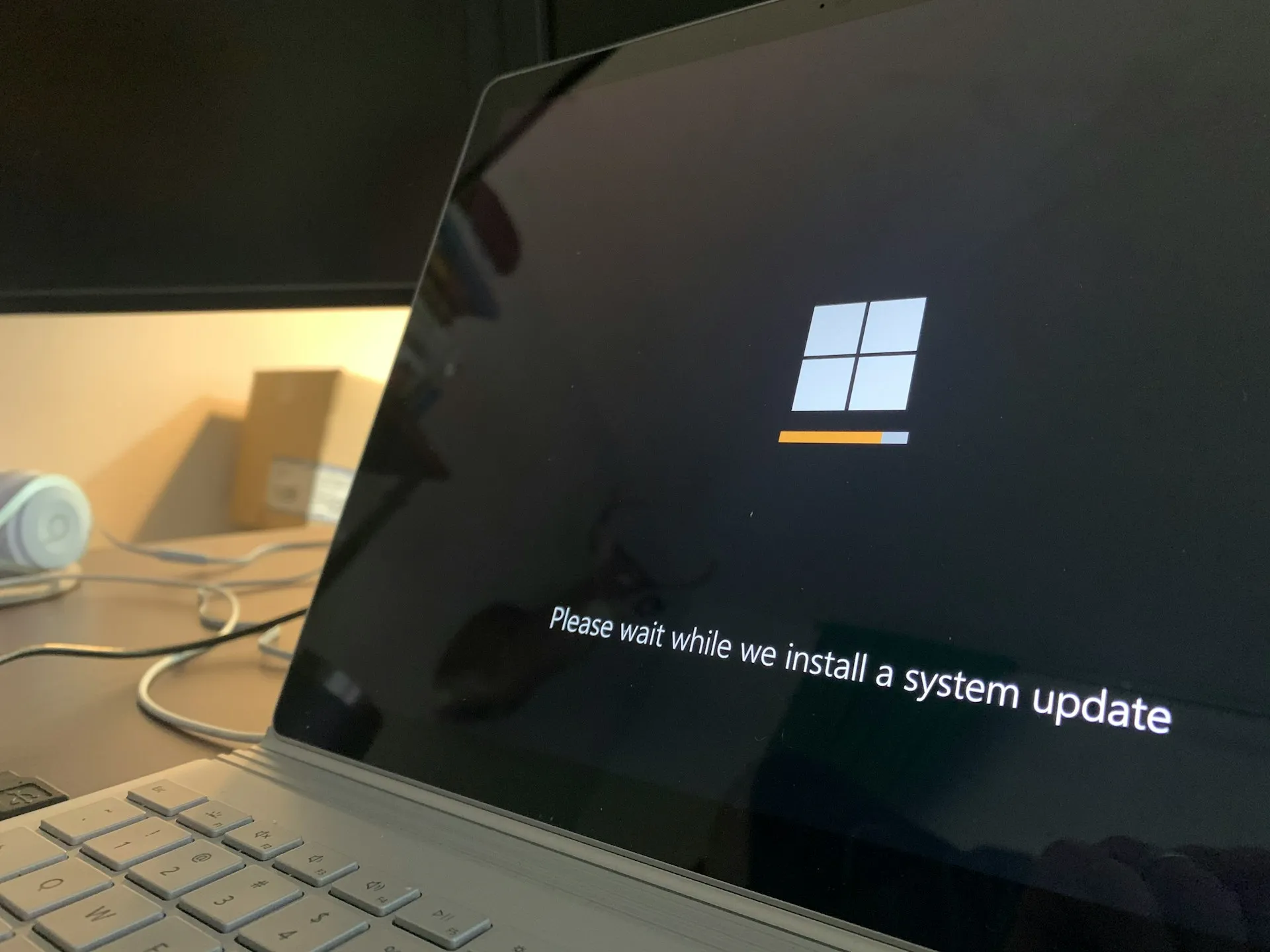With the rise of cyber threats and the sophistication of hackers, organizations are under increasing pressure to safeguard their sensitive data. While much attention is given to external attacks, the risk of unauthorized access by internal actors cannot be overlooked. Security teams are tasked with detecting vulnerabilities and enforcing data protection regulations, ensuring that proprietary information remains secure against internal and external threats. In this evolving landscape, it is crucial to maintain vigilance and continuously update security protocols to prevent data leakage and corporate espionage.
Amidst this backdrop, the significance of real-time monitoring gains prominence, offering companies an edge to promptly identify signs of insider data leakage. Best practices for network monitoring and data leakage prevention are not just recommendations but essential strategies that organizations must adopt to protect their network infrastructure. Real-time monitoring is vital in detecting data leakage, allowing security teams to respond swiftly and mitigate potential damages to the organization’s reputation and financial standing.

Understanding Corporate Espionage
Corporate espionage has become pervasive in today’s competitive markets, where companies go to great lengths for a competitive edge. With economic stagnation intensifying competition, injecting spies into rival companies is a strategy that some entities resort to. This clandestine approach to intelligence gathering undermines fair business practices and poses a significant threat to the integrity of corporate data and trade secrets.
Defining Industrial Espionage in the Modern Era
In the modern era, industrial espionage transcends the mere gathering of intelligence through legal means to secure a competitive advantage. It involves the illicit acquisition of corporate data, including intellectual property and trade secrets, often resulting in property theft. While competitive intelligence is legal and ethical, industrial espionage operates in the shadows, employing illegal methods to undermine rivals and gain undue market advantages.
The Underlying Reasons Why Corporate Spying Remains Hidden
Despite misconceptions, employee monitoring software is not primarily a tool for corporate espionage but a means to safeguard against it. While some narratives suggest it’s used to spy on employees’ personal activities, the true intent of these systems is to protect the organization’s sensitive information. The software is designed to be part of a broader cybersecurity strategy, aiming to detect and deter malicious actors from within and outside the company.
High-Profile Cases: Learning from Past Breaches
High-profile data breaches and corporate espionage cases serve as cautionary tales for organizations. These incidents often come to public attention despite companies’ efforts to maintain discretion, highlighting the vulnerabilities that even the most robust systems can face. Learning from past breaches is imperative for businesses to understand spies’ tactics and reinforce their defenses against similar threats.
The Anatomy of Data Leakage
Data leakage is a multifaceted issue that can stem from various organizational sources. As cyber threats evolve, the methods by which sensitive information is compromised become more sophisticated, necessitating a comprehensive understanding of the anatomy of data leakage. This insight is the foundation upon which effective security measures are built to protect valuable corporate assets. A key step in safeguarding data involves using [s]trong password generator online](/) to create robust and unique passwords, which are essential for preventing unauthorized access to sensitive systems and information.
Common Targets and Assets at Risk in Corporate Settings
The risk of data breaches is particularly high in sectors that invest heavily in research and development, where innovative solutions and proprietary knowledge provide a competitive advantage. These assets, client information, and financial data are prime targets for corporate espionage, as their unauthorized disclosure can lead to significant financial and reputational damage to the impacted organizations.
Insider Threats: The Role of Employees in Data Security
Corporate espionage often involves malicious insiders who, whether acting as spies for competitors or as disgruntled employees, can exploit their access to an organization’s sensitive information. These actors pose significant cybersecurity risks, as they have the potential to bypass traditional security measures and exfiltrate a company’s data. Recognizing and mitigating insider threats is critical to a robust cybersecurity framework.
Cyber Attacks: External Threats and Their Impact
While internal threats are a pressing concern, external cyber attacks are a significant source of corporate espionage and data breaches. Malicious actors outside the organization can deploy various tactics to gain unauthorized access to sensitive information, highlighting the need for comprehensive security measures to protect against insider and outsider threats.

The Legal Landscape of Corporate Surveillance
The legal framework governing corporate surveillance is a complex tapestry of federal and state regulations. These laws dictate the extent to which companies can monitor employee activity and the conditions under which such surveillance is permissible. Understanding and adhering to this legal landscape is crucial for businesses to conduct monitoring activities ethically and lawfully while protecting their interests.
Federal and State Regulations Governing Workplace Monitoring
The Electronic Communications Privacy Act of 1986 (ECPA) sets the stage for federal and state regulations on workplace monitoring. This act allows employers to monitor business and electronic communications conducted on company equipment, like laptops, for legitimate business reasons. Compliance with the ECPA and obtaining employee consent are critical to ensure legal monitoring practices within an organization.
Balancing Privacy Rights with Security Measures
Businesses must carefully balance employees’ privacy rights with the need for security measures to protect against data breaches. The Electronic Communications Privacy Act of 1986 provides a framework for this balance, allowing for computer monitoring and video surveillance when there is a legitimate business interest.
Proactive Measures to Detect and Prevent Data Breaches
Proactive security measures, including cloud storage security and third-party risk assessments, are essential in the modern digital landscape. These measures equip businesses with the tools to preemptively identify potential threats and vulnerabilities, reducing the likelihood of data breaches and safeguarding sensitive information.
Risk Assessment: The First Line of Defense
Risk assessment is pivotal in identifying the most valuable data within a corporate environment. By understanding which corporate data is most attractive to potential attackers, businesses can prioritize their security efforts, ensuring that their most valuable data is protected against unauthorized access and exfiltration.
1. Strengthening Infrastructure Security
To safeguard valuable data within a corporate network, it is crucial to strengthen infrastructure security. This involves limiting access to sensitive areas and ensuring only authorized personnel can access critical systems or information. Robust security protocols can also mitigate external threats, creating a robust defense that protects against potential intrusions and data breaches. One effective way to enhance system protection is by implementing a randomized code generator. This tool helps create unpredictable access codes, adding an extra layer of security by ensuring that unauthorized parties cannot easily guess or bypass entry points.
2. Crafting Effective Security Policies
Effective network security policies are the backbone of protecting an organization’s digital assets. These policies must outline clear guidelines for network access, including user authentication and authorization procedures. Adherence to standards such as PCI DSS is essential in maintaining a secure environment, ensuring that payment card data and other sensitive information are handled securely.
3. Employee Security Training and Awareness Programs
Employee security training and awareness programs are essential in reinforcing data security practices. These initiatives educate staff on the importance of safeguarding data, the potential risks of security lapses, and their role in preventing them. A well-informed workforce is a critical line of defense against security threats.
4. Rigorous Access Control and Data Management
Rigorous access control and data management policies help ensure that only authorized individuals can access sensitive data. By implementing strict data access and transmission protocols, companies can minimize the risk of unauthorized disclosure and maintain the integrity of their information assets.
5. Continuous Monitoring of Employee Activity
Continuous employee activity monitoring is a proactive approach to detect and address potential security incidents. This involves overseeing network and system usage to identify abnormal patterns or behaviors that may indicate a security threat, allowing for timely intervention and mitigation.
6. Comprehensive Incident Response Planning
A comprehensive incident response plan outlines the steps to be taken during a data breach or security incident. It ensures a coordinated and efficient response to minimize damage, contain the breach, and recover compromised data, thereby maintaining business continuity and protecting the company’s reputation.
7. Regular Review and Update of Security Measures
Security threats evolve, and so must the measures to counter them. Regular reviews and updates of security measures are necessary to address new vulnerabilities and threats. This continuous improvement cycle ensures that security protocols remain effective and up-to-date with the latest best practices.

Technology’s Role in Safeguarding Corporate Data
While employee monitoring software offers various functionalities, its role in preventing data leaks through in-depth network traffic analysis is limited. Instead, DLP systems, which focus on complex traffic control to detect internal information leaks, are integral to a comprehensive security strategy.
The Evolution of Employee Monitoring Software
Employee monitoring software has become a vital tool for companies worldwide, evolving to meet the demands of modern data security. These systems now extend beyond basic oversight, incorporating user behavior analytics to detect anomalies and provide immediate alerts to potentially unauthorized access or data manipulation.
DLP Systems: The Shield Against Data Exfiltration
DLP systems are a critical defense against data exfiltration, offering advanced capabilities for in-depth network traffic analysis to prevent data leaks. These systems are especially important in environments where sensitive information is transmitted, as they can effectively monitor and control inbound and outbound data flow.
Surveillance Tech: GPS Tracking and Video Monitoring
Advances in surveillance technology, such as GPS tracking and video monitoring, have enhanced the ability to oversee and protect corporate assets. These tools provide real-time insights into the location and activities of employees and company resources, helping to prevent unauthorized access and ensure the safety of both personnel and data.
Monitoring Software Capabilities and Ethics
Monitoring systems are increasingly prevalent in the modern workplace, with many organizations regularly monitoring their employees to manage workflow and secure data.
Types of Employee Monitoring Tools and Their Functions
Employee monitoring tools vary in function, from tracking employee activity on company computers to providing detailed reports on usage patterns. While these programs can enhance efficiency and security, informing employees about the extent and purpose of monitoring is imperative to foster transparency and trust.
The Debate: Employee Privacy vs Enhanced Productivity
The deployment of video surveillance and computer monitoring tools in the workplace raises a debate between respecting legitimate business interests and preserving employee privacy. Balancing these concerns is critical to maintaining a workplace culture that values ethical behavior while leveraging technology to enhance productivity.
Addressing International Concerns
International operations present unique challenges in surveillance and privacy law compliance. Companies must navigate a complex landscape of regulations and implement cohesive policies that respect the differing legal frameworks across borders, ensuring that data protection efforts are effective and lawful globally.
Navigating Global Surveillance and Privacy Laws
As companies expand across borders, they must navigate a complex tapestry of surveillance and privacy laws that vary by jurisdiction. The Electronic Communications Privacy Act of 1986 (ECPA) sets a baseline within the United States, allowing legitimate business reasons for certain types of employee monitoring, such as video and computer monitoring. However, globalization demands that legal counsel be sought to ensure multinational compliance, as regulations can differ significantly from the ECPA, with some countries enforcing stricter privacy protections for employees.
Implementing Companywide Policies Across Borders
Consistency in monitoring policies is key to compliance with diverse legal frameworks for multinational corporations. Establishing a clear, written policy informing employees about monitoring phone calls, emails, and other activities ensures transparency and can help protect the company legally. This policy must be disseminated companywide, with consideration for local laws and regulations, to maintain a uniform standard while respecting regional differences in privacy expectations.
Ensuring Legal Compliance and Best Practices
Adopting a robust security posture is essential in protecting against data misuse, especially by privileged users who may have elevated network access. Legal compliance goes hand in hand with implementing best practices, such as regular audits and access controls, to prevent espionage and unauthorized data access. Companies must stay vigilant, continually updating their strategies to counter evolving threats and ensure their defensive measures are legally sound and effective.
Crafting a Legally Sound Monitoring Policy
Creating a monitoring policy that withstands legal scrutiny involves clear communication of the reasons and methods for computer monitoring. It is essential for employers to define the scope and limitations of monitoring activities and to obtain explicit consent from employees. This policy should be crafted with legal counsel to navigate the intricacies of federal and state laws, ensuring that it is enforceable and respects employee privacy while protecting company assets.
Training Programs to Educate Employees on Legal and Ethical Boundaries
Comprehensive training programs are critical for fostering cybersecurity awareness and teaching employees secure practices. Such initiatives should emphasize the ethical and legal boundaries of handling company data, underscoring the importance of maintaining confidentiality and mitigating risks. Regular training and simulations can reinforce this knowledge, helping to build a workforce that is vigilant and skilled at identifying potential security threats.

Creating a Culture of Security Awareness
Creating a culture of security awareness within an organization starts with establishing comprehensive policies that cover all aspects of cybersecurity, including network access and network security. Adherence to standards like PCI DSS and implementing rigorous access controls can mitigate potential insider threats. By formalizing these policies and educating employees, companies can significantly reduce the risk of espionage and data breaches.
The Role of Leadership in Promoting a Security-Conscious Workforce
Leadership plays a pivotal role in promoting a security-conscious workforce. By prioritizing network security and actively monitoring network traffic, leaders can demonstrate a commitment to data protection. This approach deters potential internal threats and sets an example that can influence the entire organizational culture, encouraging employees to maintain a high level of vigilance in their daily activities.
Encouraging Employee Participation in Security Initiatives
To effectively combat insider threats, engaging employees in security initiatives is crucial. Encouraging a participatory approach allows employees to understand the importance of data security and the potential consequences of non-compliance. By involving staff in developing and implementing security measures, organizations can foster a sense of ownership and accountability, which is essential for a robust security culture.
The Future of Corporate Data Protection
Corporate data protection’s future lies in advancing technologies that can preemptively identify and mitigate risks. As confidentiality becomes increasingly crucial, organizations invest in sophisticated employee monitoring software, computer monitoring tools, and strategies to safeguard sensitive and confidential data from internal and external threats. Embracing these innovations is essential for preventing potential data theft and ensuring long-term security.
Emerging Trends and Technologies in Security Monitoring
The landscape of security monitoring is evolving, with emerging trends and technologies enhancing prevention practices. Innovations like USB drive controls and advanced monitoring technologies are becoming standard in the fight against data breaches. However, implementing these technologies must be balanced with compliance with federal and state laws to ensure that monitoring efforts are both effective and legally defensible.
Predictive Analytics and AI: The Next Frontier in Data Leakage Prevention
Predictive analytics and artificial intelligence are rapidly integral to data leakage prevention strategies. These technologies enable proactive protection of storage devices and the management of remote workers, enhancing awareness training and safeguarding robust data repositories. By leveraging AI to monitor customer data, companies can detect patterns that may indicate a risk of data theft, thereby protecting their assets more effectively.
Safeguarding Your Business
To protect your business from the costly consequences of data leaks, it is critical to implement a robust strategy that encompasses the practices discussed throughout. While valuable for overseeing workplace productivity, employee monitoring software must be complemented by comprehensive Data Leak Prevention (DLP) systems that proactively detect unauthorized network traffic and safeguard secret data. A multi-layered approach ensures that internal and external threats are addressed, preserving the integrity of business interests and preventing fraudulent activities.
